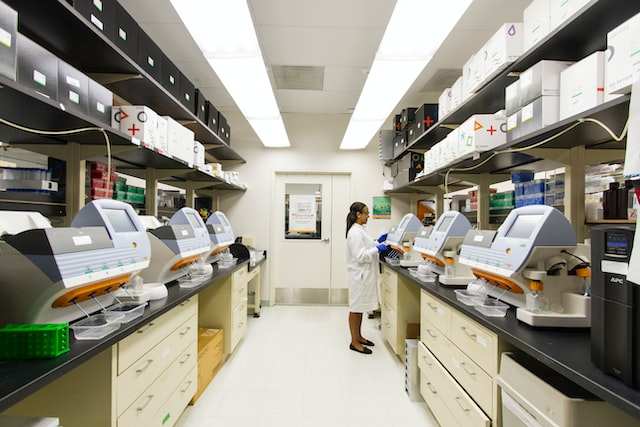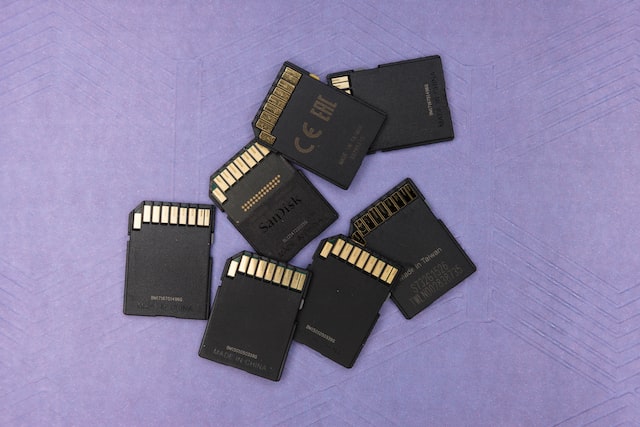Virtual data rooms for life science industries
A virtual data room for life sciences is a secure platform for barrier-free collaboration and robust protection of sensitive documents within the life science industry.
Regardless of the project, life sciences organizations work with multiple documents and parties, encouraging them to use data rooms in scenarios such as biotech fundraising, digital health, medical devices, pharmaceuticals, clinical trials, strategic IPO, research and development, licensing and partnering, and IP management.
The best data rooms for life sciences
We have listed the top five best healthcare virtual data rooms for clinical research firms, medical device companies, regulatory agencies, and other organizations looking to streamline procedures and optimize the time spent on them.
| Provider | Life Sciences Expertise | Top Features |
| iDeals | Biotech licensing and partnering Biotech IPO IP management Regulatory communications M&A due diligence | 8 levels of granular permissions Built-in redaction Customizable digital watermarks Secure spreadsheet viewer 25+ file formats support Advanced Q&A workflow Live chat support 24/7 |
| Firmex | In/out licensing Clinical trials Mergers and acquisitions Medical device companies Pharma companies | Digital rights management Auto-indexing Single sign-on Document redaction Optical character recognition |
| ShareVault | Diagnostics Medical devices Therapeutics Biotech companies Biopharma partnering | Dynamic watermarking IP-address tracking Activity-based heat maps Inter-document hyperlinking |
| Datasite | Medical devices Pharmaceutical companies Hospitals Biotech Digital health Specialty chains | Two-factor authentication Optical character recognition Information rights management In-app Q&A tool Single sign-on |
| Box | Research and development Clinical collaboration | AES 256-bit encryption Auto-classification of data Multi-layered malware scanning Historical reporting Centralized audit logs |
How virtual data rooms are used in life science industries
As mentioned, the data room has become a must-have solution throughout the industry. To demonstrate its value, we invite you to study how it works for each use case in more detail.
Clinical trials
Clinical trials face two significant challenges — organization and confidentiality. In particular, research institutes process a massive amount of documentation, such as informed consent, study progress reports, and case record forms. Also, these centers mainly involve clinical research volunteers.
A data room simplifies clinical trials making it easier to upload and exchange large volumes of data. Beyond that, users can do the following:
- Centralize all data for easy and protected access
- Keep track of research communications
- Manage and distribute questions between experts with Q&A
Strategic IPO
Preparation is a significant component of going public. Specifically, it includes organizing all the required paperwork and following industry best practices when filing an IPO.
A life science data room frees you up to concentrate on what really matters on the way to your goal, reducing the time and effort for document management. In this manner, IPO filing becomes simplified and transparent.
Here’s what you can do faster and easier when you go public with data rooms:
- Collect required data using the Life Science IPO checklist
- Manage the company’s financial statements
- Prepare for due diligence by gathering needed files and paperwork, including the company charter and operating agreements.
Biotech fundraising
With a virtual data room, you can organize a smooth and convenient fundraising deal flow by providing data to investors efficiently.
In essence, virtual data rooms are far more segregated than public-access storage platforms. This way, a well-organized VDR structure helps investors save time by delivering quick and easy access to critical data.
Thus, biotech data rooms help you to do the following:
- Share and view documents in different formats, such as DICOM files (ultrasounds, X-rays, and computed tomography (CT) scans)
- Refer to the checklist to include all required data
- Navigate through hundreds of documents with automatic sorting and indexing
Licensing and partnering
Virtual data rooms allow for the simultaneous consideration of multiple partnership opportunities when the project includes external partners. Also, potential partners can access required data online while unaware of each other.
Data rooms provide accurate tracking of every user activity, thereby enhancing licensing. Administrators actively use this to gauge how committed and competent each member is.
The power of virtual data rooms for licensing partnerships lies in delivering such capabilities as:
- Drawing up engagement summary reports
- Sharing sensitive information without jeopardizing intellectual property
- Storing drug-related information in a single ultra-secure virtual space
IP licensing
Intellectual property is the central asset of most life science organizations’ projects. To a large extent, IP portfolio efficiency determines recognition in the industry, investor interest level, and innovation progress.
With a VDR’s functionality, you can present related documents gradually to stay focused on each step of the evaluation and licensing. Additionally, companies employ the solution to:
- Securely protect the most sensitive information following compliances
- Control and regulate data access granularly
- Significantly reduce the risk of law violations
Regulatory communications
Most data room features benefit filing and regulatory consulting. For instance, integrated communication tools and secure document storage establish seamless and productive cooperation.
Furthermore, a data room is ideal for centralizing valuable information. At the same time, you can revoke access to specific data segments. Moreover, this online platform can:
- Provide integration with other apps for maximum performance
- Divide procedures and projects into stages to simplify their implementation
- Deliver data organization chart templates
Benefits of using VDRs for life sciences
Data rooms address the significant challenges of the life science industry, including protecting sensitive information and collaborating with multiple parties. In particular, here are the benefits that users appreciate the most.
Enhanced deals management
With AI-powered data room tools, organizations can identify the best strategic partners, analyzing current pipelines and past transactions.
Specifically, you can confidently evaluate the similar conditions of a specific deal, analyze financial indicators, find profitable partners, and conduct due diligence with detailed real-time insights into bidder engagement.
Unmatched data security and compliance
Compared to other solutions, virtual data rooms give infinitely more control over access to sensitive medical data, such as patient information or clinical trial results.
It is possible with ultra-secure data centers, multi-layer 256-bit AES encryption of data at rest and in transit, real-time data backup, and access protection via multiple-factor authentication.
The solutions also comply with HIPAA and GDPR standards, guaranteeing the privacy and integrity of sensitive data in storage and when you share it.
Simplified document management
In addition to unparalleled security, data rooms provide easy document management, no matter how many files you have. This way, organizations can upload hundreds of documents at a time. Furthermore, leading platforms support dozens of formats, so there is no need to prepare documents for uploading, saving life sciences companies time.
Just as valuable is that the software automatically designs an easy-to-navigate and logical data structure, which brings an enhanced user experience and significantly speeds up transactions.
Efficient due diligence
When a biotech company considers an M&A, it must conduct due diligence, which involves a lot of data and multiple parties, including investors, regulatory advisors, accountants, and lawyers. The virtual data room is an ideal feature-rich platform for smooth and secure collaboration between parties.
On the one hand, target companies can gradually provide the necessary documents, setting up secure access for each user and tracking all the activities in real time. On the other hand, buyers and investors can analyze data in an easy-to-use space with scroll-through tools and full-text search.
What to include in your life science data room?
Virtual data rooms may be designed based on the company’s preferences or the deal’s specifics. However, at the same time, there are a few essential elements that all biotechnology organizations should have.
- Corporate overview
Apart from information on the teams, advisory boards, and organizational structure, a corporate overview folder should include details on the company and its objectives.
- Commercial strategy
This set of documents usually covers the commercial strategy of the organization, including market research, commercial forecasts, and competitive analysis. It is helpful from a corporate perspective and when making acquisitions.
- Investment overview
As a rule, an investment overview contains details on each stage of the due diligence process. It is worth noting that you can make it accessible only to those who have met the privacy standards for each level. It guarantees both security and accessibility to information.
- Regulatory requirements
Regulatory requirements include the investigator’s brochure, an investigational new drug application, a transcript of regulation discussions, and a collection of historically significant regulatory records. With this, companies ensure all the relevant parties access the regulations determining whether a study is viable.
- Preclinical program
There should be a preclinical program folder with details on previous, current, and future studies. It is one of the most critical folders because it has the information that makes up the firm’s focus. So, there should be a description of each study with status and timing, completed reports of all your studies, and published manuscripts.
- Clinical program
This folder contains most of the information from the preclinical program. The difference is that the data in the preclinical folder is pending confirmation for clinical trials, while the documents in the clinical program folder present studies that meet those requirements.
- Intellectual property
Intellectual property rights should be organized in a separate folder, including patent estate, issued patents, pending patents, and other legal documents.
- Manufacturing
A manufacturing folder may present facility overview, agreements, process and process validation data, inspection documents, policies and procedures, and certifications. This set of documents demonstrates not only the integrity of clinical trial data but also the integrity of the organization itself.
Key takeaways
- The virtual data room is a high-powered solution to secure your life science business development while you improve human living standards. It is ideal for clinical trials, strategic IPOs, biotech fundraising, licensing and partnering, IP licensing, and regulatory communications.
- The platform’s innovation-driven functionality is tailored to most of the industry’s needs, including patients’ sensitive data protection, secure data sharing, and productive cooperation with multiple parties.
- A virtual data room provider facilitates improved transaction management, unparalleled data protection, and simplified document management for life science organizations. Furthermore, a VDR adds efficiency to the due diligence process. All this makes up the digital transformation of the life science industry, which allows it to bring even more benefits to humanity.



